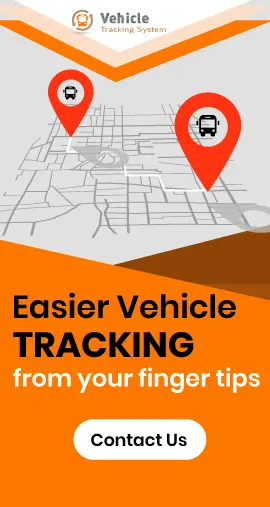Lithium Ion Battery – Will It Replace Conventional Car Battery
April 13th, 2018
It’s been said that Lithium ion batteries are going to replace conventional batteries by many of the world’s leading car manufacturers.
Conventional batteries like lead acid are one of the oldest rechargeable batteries in existence. But one must charge these batteries regularly so as to avoid sulphation.
The battery if left uncharged may become sulphated and can’t be recharged. Finding the ideal charge voltage limit is essential for a lead acid battery.
One should use extreme caution as it has sulphuric acid in it. Mishandling it may cause burns.
Lead acid batteries must be when recharged will cause some electrolytes to evaporate which might lead to discharge of hydrogen gas which is highly flammable.
So lead acid batteries much be stored and recharged away from any source of fire. Whereas a lithium ion battery is supposed to revolutionize the electric vehicle industry.
Recent Breakthrough
Sila Technologies is a startup company that manufactures Lithium ion batteries.
They were in stealth mode till recently, and they are now partnering with the German automaker BMW to put some of its anode material in the electric cars by the end of 2023.
The deal is supposed to increase 10 to 15 percent increase in the amount of energy that can be packed into the battery cell that has a given volume.
They have been working hard to increase the performance of lithium ion batteries.
For electric vehicles this means that the so called energy density can increase the mileage on a single charge and also decrease the size and cost of the batteries.
For consumer gadgets like smartphones it could solve the issues of low battery charge.
The new lithium batteries can help to accommodate larger cameras and 5G networks and not take a toll on the battery charge.
How did Lithium Ion Battery make a Big Leap
There was always research going on about how to advance the performance of lithium ion batteries. But those came to about a few percentages at a time.
Berdichevsky who was an employee of Tesla crossed hands with Gleb Yushin who is a material scientist at Georgia Institute of Technology to create the battery technology for Sila.
The anode is the negative electrode of the battery which when charged stores the lithium ions.
It was long believed by engineers that silicon was held as an anode material as it can hold 25 times more lithium ions than graphite.
It is one of the main materials used in lithium ion batteries of today. But there is an issue connected with it. The volume expands when silicon accommodates too much lithium ions.
This puts stress on the material which might lead to crumbling of the battery. Battery life may be affected due to the electrochemical side reactions.
How They Work
A lithium ion battery is the main power source for modern electric vehicles.
Each battery is made up of many smaller batteries called cells. The electric current reaches the cell by its conductive surfaces.
Mostly it is made of aluminium on one side and copper on the other. Just like in any other battery there is a cathode and an anode.
The cathode is made of a pure lithium oxide whereas the anode is made of graphite.
The battery is filled with the transport medium the electrolyte so that the lithium ions that carry the battery’s charge can flow freely.
This electrolyte must be extremely pure and free of water in order to ensure efficient charging and discharging. To prevent short circuit there is a level between the anode and the cathode which is called the separator.
Conventional Car Battery and Lithium Ion Battery
The one thing that is constant is change. Lead acid batteries have been in use for years and car manufacturing companies abhor any changes that have to be made.
Lead acid batteries are heavy, has dangerous acid base and here are a few downsides of lead acid batteries:
1. Limited life cycle
Lead acid batteries have a limited life cycle. If they are drained occasionally they tend to have a short life cycle.
2. Limited useable capacity
These batteries have a limited useable capacity. Once it is used and drained there are chances that they cannot be recycled. This is one of the major disadvantages of a lead acid battery.
3. Inefficient and slow charging
Lead acid batteries may be charged to 80 percent easily but the rest of the 20 percent takes a lot of time. This final 20 percent takes 80 percent of the time to get charged.
4. Flooding issue
There are chances that the acid might spill out while the battery is charged. The battery should be placed in a way so that the top portion is vented to the outside.
Whereas the lithium ion batteries are:
1. Usability
It is practical to regularly use 85 percent or more of the capacity of the battery. While the lead acid can be used up to 50 amp hours a lithium ion can be used for up to 85 amp hours or more.
2. Extended life cycle
Lithium ion batteries have longer life cycle and the battery will deliver 75 percent capacity of after 2000 cycles. It is estimated that lead acid batteries are only good for 500 to 1000 cycles while lithium ion batteries have about 2000 to 5000 life cycles.
3. Little maintenance
Most of the time these batteries have little or no maintenance. There is a balancing which makes sure that all the cells in the battery are equally charged.
4. Climate resistance
Lead acid batteries lose their capacities in cold environments. It becomes difficult to start the vehicle in damp atmosphere.
Without doubt we can be sure that lithium ion batteries will replace conventional car batteries. Especially electric cars will use lightweight batteries when compared to heavy lead acid batteries.
The change might be slow but it will definitely happen. Lithium ion batteries have a better rep for being environment friendly when compared to other batteries.
Let us wait for the evolution to take its place.

